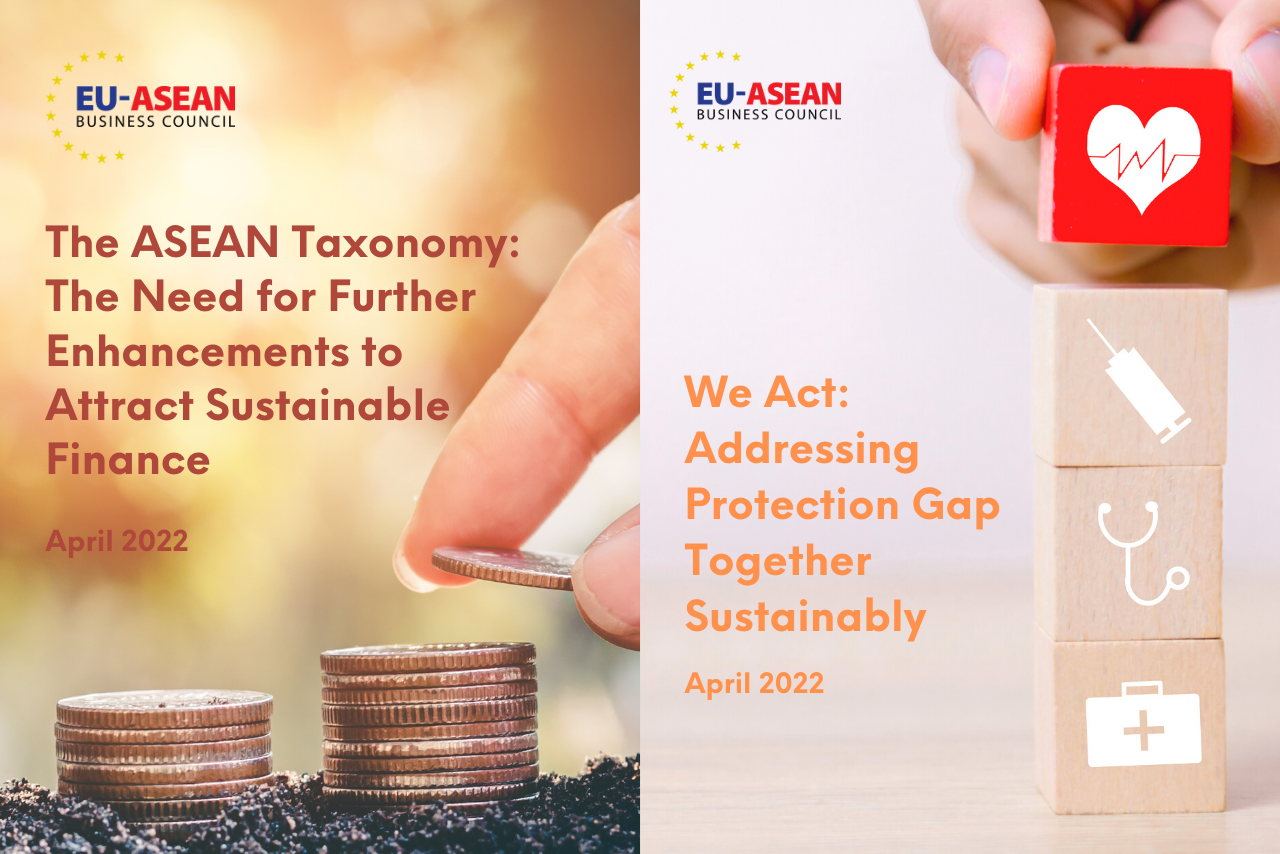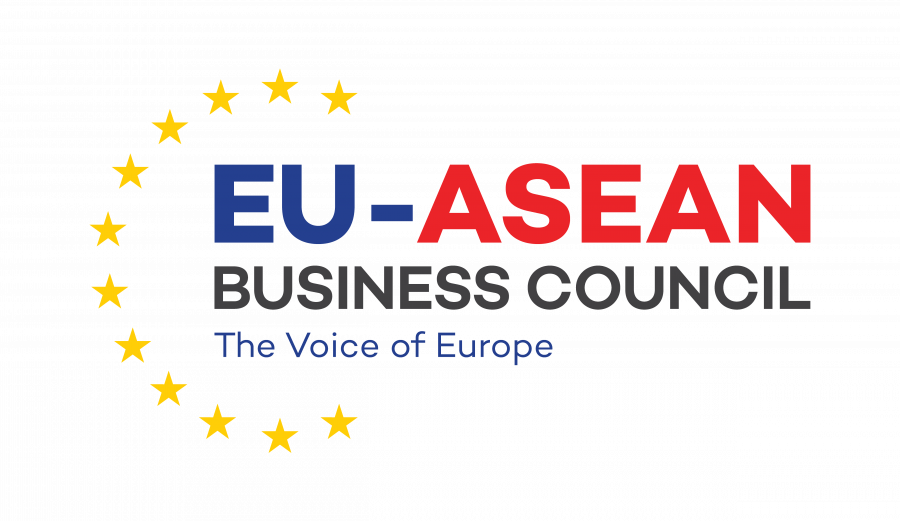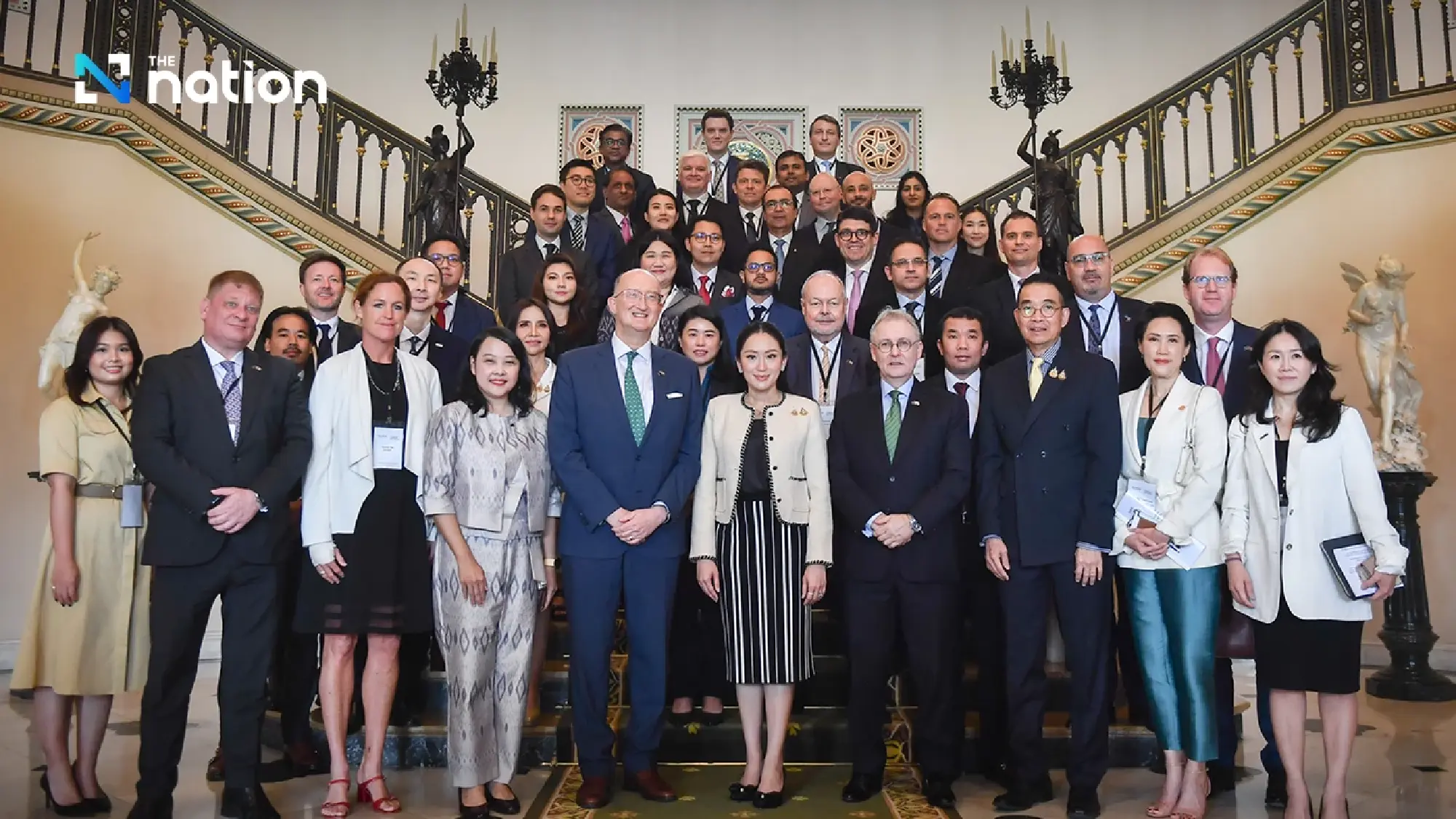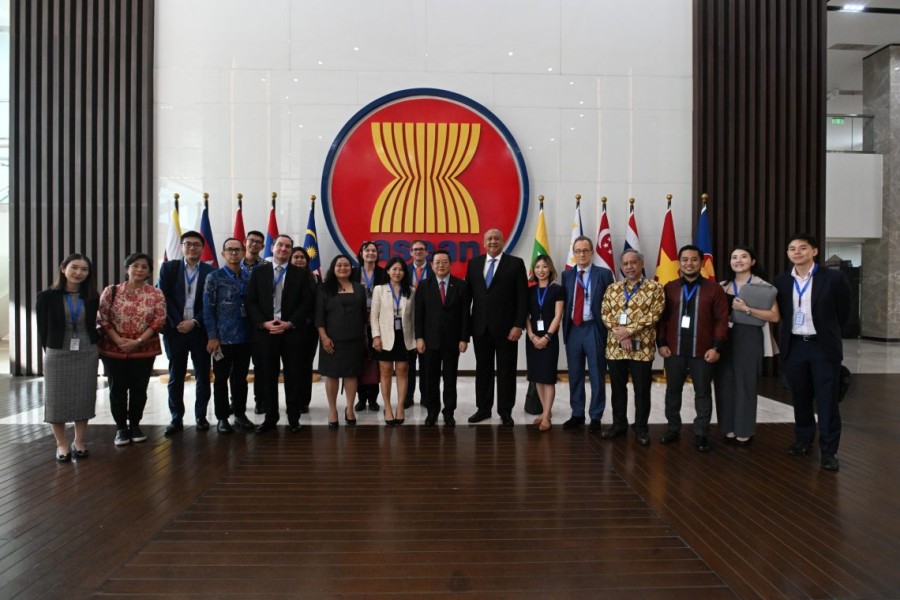
EU-ASEAN BUSINESS COUNCIL MEETS ASEAN FINANCE MINISTERS & CENTRAL BANK GOVERNORS
Links Greening of Supply Chains and Energy Transition to Sustainable & Just Recovery for ASEAN
Highlights Need to Accelerate Action on ASEAN Integration
Singapore – 8 April: The EU-ASEAN Business Council (EU-ABC) today held its annual consultation meeting with the ASEAN Finance Ministers and Central Bank Governors. In line with Cambodia’s Chairmanship theme for ASEAN of “ASEAN Addressing Challenges Together”, the Council focussed on the need for the region to accelerate regional action to ensure a sustainable and just recovery for ASEAN.
Key recommendations made by the EU-ABC to the Ministers and Central Bank Governors were:
- “Green” supply chains to maintain ASEAN’s attractiveness for Foreign Direct Investment
- Accelerate energy transition whilst meeting increasing electricity demands
- Accelerate ASEAN Economic Integration, particularly the removal of Non-tariff barriers to trade and the harmonisation of standards
- Accelerate transition to digital economies
- Deliver on sustainable universal healthcare coverage
- Importance of all the above to improve the attractiveness of ASEAN to fund the US$230bn annual infrastructure needs and for create the jobs of the future
Speaking about the consultation meeting with ASEAN Finance Ministers & Central Bank Governors, Donald Kanak, Chairman of the EU-ASEAN Business Council said: “ASEAN as a region has responded well to the COVID pandemic, through public health initiatives and large fiscal support packages. GDP growth is returning, and the region’s share of global FDI increased. But with new challenges of inflation, supply chain bottlenecks, and increasing urgency to deal with climate change, strong concerted action is needed on several
fronts for a sustainable recovery. The good news is that the responses to these challenges can be mutually reinforcing not conflicting. Investing in energy transition and greener business models will both accelerate job creation and position ASEAN as the centre of “green supply chains” and jobs of the future. Businesses are looking to invest more in regions or countries that are moving forward to green their economies. This creates a window of opportunity for public-private alignment and cooperation on inclusive growth”.
Speaking further about the meeting, Donald Kanak continued: “There is an absolute need for Governments and the Private Sector to work together to solve the challenges we all face today, for our futures. ASEAN can become an even more attractive centre for sustainable investment, but policy will matter. There is a competitive global market for capital because so many countries will be retooling their infrastructure for energy, for secure supply chains and for the new digital economy. This means reinforcing and unifying the region’s approach on areas like ESG standards and disclosures and shifting policy to advance a more sustainable energy mix, without sacrificing access or security. At the same time, there is unfinished work to do on removing barriers to trade and investment. Our members are optimistic on the opportunities in ASEAN and eager to partner in tackling these challenges.”
The EU-ABC also took the opportunity of the meeting with ASEAN Finance Ministers and Central Bank Governors to publish two new advocacy reports: One on insurance, We Act: Addressing Protection Gap Together, Sustainably and one on the ASEAN Taxonomy for Sustainable Finance, The ASEAN Taxonomy: The Need for Further Enhancements to Attract Sustainable Finance.
Speaking about the new papers, Chris Humphrey, Executive Director of the EU-ABC said: “Both of these new papers relate to the topics raised with the ASEAN Finance Ministers. Our Insurance paper covers recommendations both on digital access to wellness solutions and increased insurance protection as well as looking the development of ESG standards in the insurance sector in ASEAN. The latter is key going forward for the development of the insurance sector, whilst increased use of digital tools will enable the uninsured to get easier access to insurance and health-related solutions. On ASEAN Taxonomy, we commend ASEAN for the progress made to date on developing a region-wide approach for how sustainable finance projects can be assessed: the Taxonomy now needs to be developed further to help financial institutions see ASEAN as region where they can invest in sustainable projects – not just those that are clearly net-zero carbon but also,
importantly, those that will help the region transition to a net-zero environment.”



